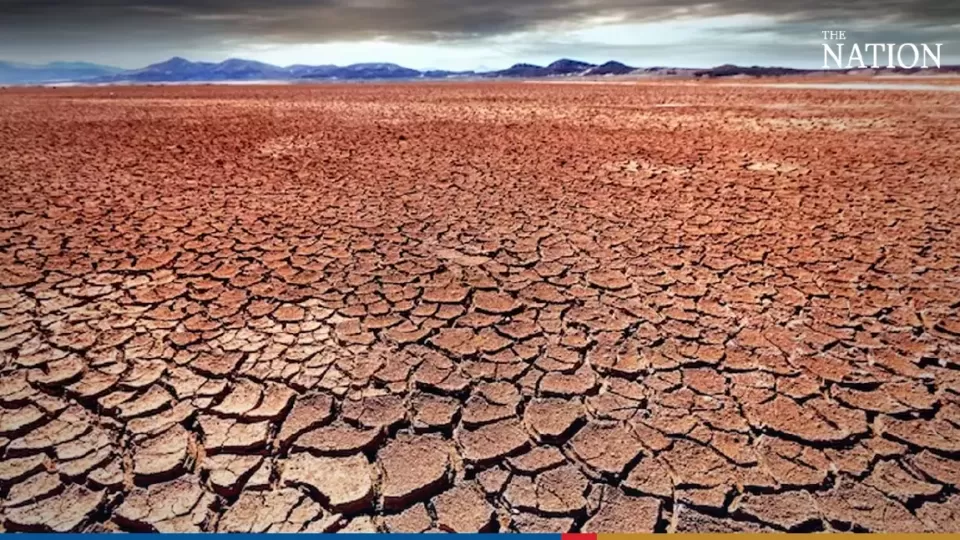May 12, 2023
BANGKOK – Thailand is susceptible to the effects of El Niño, which is forecast by the Department of Meteorology and weather experts to commence in June. The world, Thailand included, is expected to face an intense drought due to the occurrence of El Niño, leading to reduced rainfall during the rainy season, or possibly no rain at all.
El Niño is the warm phase of a cyclical climate pattern known as the El Niño-Southern Oscillation, when temperatures in the Pacific reach more than 0.5 degrees Celsius above normal.
In addition to the ongoing drought, which is predicted to last for 2-3 years, Thailand is also facing another unprecedented phenomenon, the so-called “Monster Asian heatwave”. This extreme heatwave is considered another sign of the escalating global warming issue that humanity must address.
Varawut said that heatwaves tend to mostly hit Europe, but had yet to occur in Asia until now. This year’s extreme heat underlined growing global warming concerns and has made it even more important to recognise the need to reduce plastic wastes and industrial air pollutants. There is no quick fix, however. Because we have been degrading the environment for many decades, it will take many years of intensive efforts to tackle the global warming problem.
The problem of the Monster Asian Heatwave can be put down to the transition into the El Niño phase, which involves changes in the warm-water current flow. As global temperatures rise, temperature changes will be less pronounced, leading to more intense heatwaves. Wherever the temperatures rise, severe drought conditions will occur, resulting in even higher temperatures, Varawut said.
“Preparing to deal with the severe drought crisis for the next 2-3 years is urgent,” Varawut stressed. In the past, Bangkok has experienced flooding and a rising sea level due to the melting of the polar ice caps. If the situation worsens beyond the current level, the El Niño issue will become even more severe in the next 2-3 years. Measures should be taken now to cope with future flooding and provide adequate support for the El Niño phenomenon, which will intensify. Thailand must be prepared to tackle the heatwave trend and severe drought risk.
Solutions to this problem include building more reservoirs and expanding the waterways to accommodate rainfall during this rainy season. The dry season next year is expected to be more severe than previous years. Although this year’s dry season is a concern, Varawut added, there are still adequate water reserves in the dams. However, the situation is expected to worsen next year and in 2025. Therefore, sufficient water storage facilities and efficient farmland irrigation system are vital preparations.
“Nature is entering the process of penalising us through droughts and heatwaves. Besides the rising land temperature, the impact is also felt in the rising sea temperature and its more complex environmental system. Even a few degrees increase in seawater temperature has already caused coral bleaching,” Varawut pointed out.
“Whether the issue of climate change will lead to the collapse of our world, or not, is still up in the air. We may not have reached that stage yet but if we do not expedite efforts to tackle this issue seriously, we may face a loss of biodiversity,” Varawut said.


